This post may contain affiliate links. Any sales made through such links will reward me a small commission – at no extra cost for you!
Skincare can be a bit too much at times. But, when it comes to body moisturizers, things are not as complicated as it sometimes seems. Scroll down to find out what is the difference between body butter vs. body lotion and which one is better for your skin…
When choosing your body moisturizer, what matters to you the most? The scent? How fast it gets absorbed? What kind of film it leaves on the skin?
If you are like most girls, your answer is probably – all of the above. After all, why settle when there are so many options to choose from on the market?
But when it comes to the exact type of moisturizer you should be using, there really is no right or straightforward answer. The battle between body butter vs. lotion is a never-ending one and both teams have pretty passionate fans.
So, why some girls would never even consider switching from their body lotions, while others swear on the miracle nourishing abilities of their body butters? Well, personal preferences do play a part.
But, there is one determining factor that can truly sway you one way or the other and make you a lifetime fan of either body butter or body lotion – your skin type and its specific needs.
Body Butter vs. Body Lotion – What Is the Difference
Though both body butter and body lotion are products intended to moisturize the skin, there is a huge difference in the way they try and fulfil this important task. And that difference, as well as the difference in the texture and absorption abilities, comes first and foremost from the difference in the ingredients between body butters and lotions.
One of the simplest definitions would be that body butters are oil-based, while lotions are emulsions of oils and water.
Body butters
Body butters are moisturizers that contain mostly just plain butters and oils. If you check their ingredients lists, you will probably sea shea butter, cocoa butter or mango butter; coconut, jojoba, avocado, sweet almond and other natural oils, and maybe one or two essential oils for scent.
Because of this, body butters are usually much heavier than body lotions. They have a thicker consistency, need more time to sink into the skin and have an oilier finish.
Body butters work by trying to trap in the skin the water that is already there. That is why it is often recommended to apply body butter right after the shower, while the skin is still slightly damp.
Butters mimic and reinforce the skin’s natural lipid barrier. They don’t supply the skin with water, but they are amazing in keeping dry skin soft, smooth, supple and well protected, as well as in preventing future drying out.
Body lotions
Unlike body butters, body lotions contain a mixture of ingredients that moisturize the skin (such as the above mentioned butters and oils, or squalane, ceramides, etc.) and ingredients that supply the skin with hydration (water and hydrosols, hyaluronic acid, glycerin, aloe vera, honey…).
This water content is what makes lotions way thinner and lighter than butters. Lotions get faster absorbed into the skin and are less likely to leave the oily residue.
Although they are not as nourishing and protective as body butters, lotions sink deeper into the skin and provide more layers with hydration, nutrients and antioxidants. They replenish the skin, make it look plump and elastic and leave your skin feeling fresh and revitalized.
If you often get back acne, lotions should technically be less likely to clog pores. Therefore, it would probably be a better choice. Although, a lot of girls report that oils and butters actually helped them more to put acne under control. So it might be best that you experiment a bit and see what works better for you.
So Which One Is Better, Body Butter or Body Lotion?
The famous battle between body butter vs. body lotion doesn’t necessarily have a winner. It is more about what your skin needs more – intense long lasting moisture or lightweight hydration.
And this is not a strict rule, so you should probably get some samples and try both to see which one your skin likes more. But generally speaking, if your skin is dry or mature, it will probably prefer body butter. Whilst if it is more on the dehydrated side, lotion will suit it more.
Also, if you need a more intense nourishment and skin repair, such as with eczema, skin sensitivities, chapped skin or for pregnancy stretch marks prevention, there is a good chance you’d find body butters more helpful. On the other hand, if you just want a lightweight nourishment and to be able to get dressed right away, lotion is your better bet.
There are also many in-between options. For example, many girls use body lotions during spring and summer, then switch to butters for fall and winter.
Some girls like to use a body lotion daily, then thoroughly nourish the skin once a week with a body butter. Others apply lotion to their whole body skin, then add a layer of butter to the chapped skin or areas that dry out faster, like elbows, knees and heels.
After all, you don’t necessarily need to choose between body butter and lotion. You can alternate between the two and make sure your skin always has exactly what it needs in that moment.
READ NEXT: HOW TO MAKE YOUR OWN BODY BUTTER











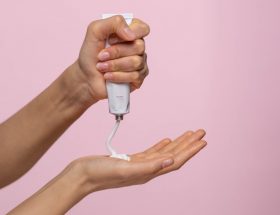

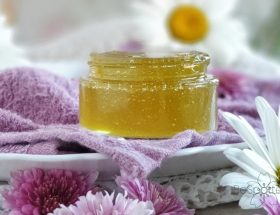

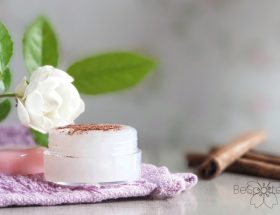
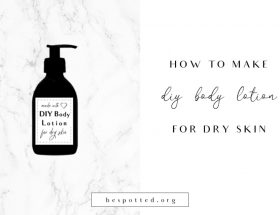

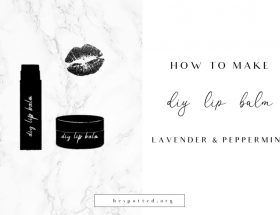
Great stuff!!
Thank you for your tip that body butter must be applied while the skin is still barely damp right after taking a bath. Reading through your post made me want to try body butter since my skin needs more intense nourishment. I’ll start looking for a store that sells organic body butter to see if it will work on my skin type.